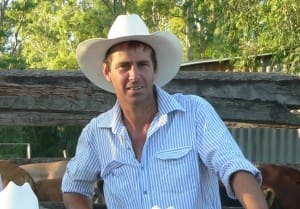WHAT do the dramatic events surrounding corruption within the ranks at JBS in Brazil, and particularly the latest JBS asset sales in Argentina and elsewhere, mean for the Australian beef industry?
While the ramifications have to this point only been focused on Brazil, farm groups in Argentina are already seeking an investigation into the purchase by JBS of five plants in the country some years ago, some of which have since been closed. The farmer group alleges that the purchases may have involved influence with Argentina’s former Kirchner government.
UK farmer groups are also using the corruption issue as an argument why the EU should remove agriculture from the current five-country South American (Mercosur)/EU FTA negotiations, and put further constraints on Brazilian beef in to the EU.

Cattle Council of Australia president Howard Smith.
Cattle Council of Australia president Howard Smith told Beef Central this morning that CCA was monitoring the developments within JBS/J&F in Brazil closely.
“We’re obviously concerned. The last thing we want here in Australia is disruption in the processing sector, particularly as JBS is easily the largest processor in the country. We want to maintain as much competition in the processing sector for cattle as we can, and we know that processors at the moment are running on pretty tight, or indeed negative margins,” Mr Smith said.
“We don’t need something like this to disrupt the industry in any way.”
Mr Smith said it was impossible to tell, despite what had happened in asset sales in Argentina and elsewhere overnight, whether there was any particular cause for concern in Australia.
“You just never know with these things, whether there will be any ripple effect. There’s a lot of supposition going on, but it’s not good.”
“But when companies are pressured to sell assets, sometimes decisions are made which might not be in the best interests of the broader industry. We are certainly watching developments closely.”
“It’s been suggested that JBS is ‘too big to let fail’, but who would know,” Mr Smith said.
What other assets could JBS owners consider for sale?
In addition to its red and white meat processing and lotfeeding operations in North and South America, Australia and Europe, JBS also operates in sectors related to its core business such as leather (it is the single largest leather producer in the world), biodiesel, collagen, soaps, glycerin and embedded wraps, as well as its waste management, metal packaging and transportation businesses.
Any, or all of these could come under consideration for assets sales, in addition to processing assets.
Update:
On June 8, JBS SA told Reuters that no core assets in the United States or any other part of the world were candidates for sale, a day after announcing a deal to sell Argentine operations to a smaller rival. The agreement with buyer Minerva SA, announced on Wednesday, was the first by JBS since its founders admitted to paying bribes to Brazilian politicians in exchange for favors in a scandal that threatens to topple President Michel Temer.
- Beef Central’s US columnist Steve Kay will explore the JBS crisis further in his upcoming monthly column appearing exclusively on Beef Central.
- See this morning’s main story: JBS jettisons processing assets in South America, as crisis impact starts to take effect
